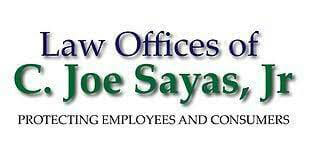Accommodating employees with mental disability

Kimberlee Gutierrez worked as a patient registration clerk for Dignity Health for 9 years. Kimberlee had a history of mental disability, which worsened when she was violently attacked by an ex-boyfriend. She took a medical leave of absence for her disability. When she returned to work, she claimed that she faced discrimination. When she tried to report the discrimination, she faced retaliation. Kimberlee was eventually terminated from her position.
She filed a lawsuit against her former employer, Dignity Health, claiming disability discrimination, failure to prevent discrimination, and retaliation.
The employer claimed that it did not discriminate or retaliate against Kimberlee. The employer argued that Kimberlee was disciplined and eventually terminated her because of her insubordination and violation of the employer’s cell phone use policies.
California law defines two categories of disability: mental disability and physical disability. A physical disability is any physiological disease, disorder, condition, cosmetic disfigurement, or anatomical loss that affects the body and limits a major life activity. When a condition limits a major life activity, it means that the achievement of the major life activity is difficult. Working at a job is considered a major life activity.
A mental disability is any mental or psychological disorder or condition, such as mental retardation, organic brain syndrome, emotional or mental illness, or specific learning disabilities, which limits a major life activity.
An employee who has depression, post-traumatic stress disorder (PTSD), schizophrenia, and personality disorders, or other mental health condition, is protected against discrimination and harassment at work because of their condition. They have a legal right to get reasonable accommodation that can help them perform and keep their job. This guideline is provided by the Equal Employment and Opportunity Commission (EEOC).
It is illegal for an employer to discriminate against an employee simply because they have a mental health condition. This includes firing or demoting or forcing the employee to take leave.
An employer does not have to hire or keep people in jobs they can’t perform, or employ people who pose a “direct threat” to safety (a significant risk of substantial harm to self or others). But an employer must not rely on myths or stereotypes about a mental health condition when deciding whether the employee can perform a job or whether they pose a safety risk. The employer must have objective evidence that the specific employee cannot perform their job duties, or that they would create a significant safety risk, even with a reasonable accommodation
If an employee’s mental health condition affects their job performance, the employee has a right to a reasonable accommodation that would help them do their job. A reasonable accommodation is a change in the way things are normally done at work. A few examples of possible accommodations include altered break and work schedules (e.g., scheduling work around medical appointments), quiet office space or devices that create a quiet work environment, changes in supervisory methods (e.g., written instructions from a supervisor who usually does not provide them), changes in shift assignments, and permission to work from home. A discussion between the employee and medical provider or employer may result in different ways of accommodation.
An employee is entitled to reasonable accommodation for any mental health condition that would, if left untreated, “substantially limit” their ability to concentrate, interact with others, communicate, eat, sleep, care for themselves, regulate their thoughts or emotions, or do any other “major life activity.” An employee does not need to actually stop treatment to get the accommodation.
Kimberlee’s case went to trial. As the Daily Journal reported, the jury returned a verdict for the employee in the amount of $646,651, which included $471,651 in damages and $175,000 in punitive damages. ©
The Law Offices of C. Joe Sayas, Jr. welcomes inquiries about this topic. All inquiries are confidential and at no-cost. You can contact the office at (818) 291-0088 or visit www.joesayaslaw.com. [C. Joe Sayas, Jr., Esq. is an experienced trial attorney who has successfully recovered wages and other monetary damages for thousands of employees and consumers. He was named Top Labor & Employment Attorney in California by the Daily Journal, consistently selected as Super Lawyer by the Los Angeles Magazine, and is a Presidential Awardee for Outstanding Filipino Overseas in 2018.]

